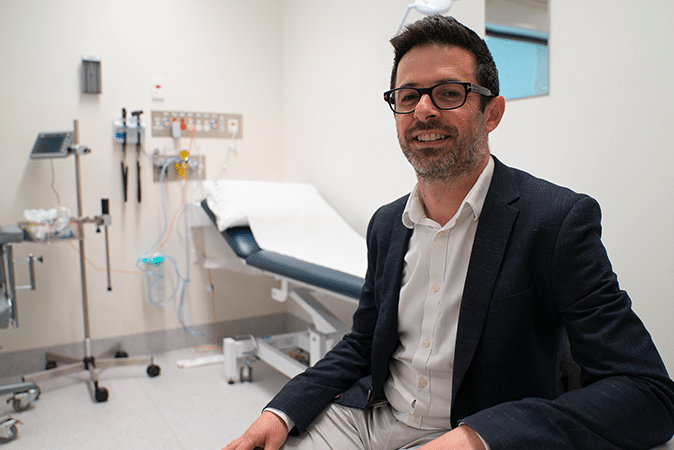IS it OK To Exercise With Breast Cancer?
More than 40% of new cancer cases are linked to lifestyle factors, and about one third of all cancers are preventable through a healthy diet, being physically active and maintaining a healthy weight.
The link between good health and exercise is well established and more cancer practitioners are prescribing exercise as part of treatment plans for their patients.
But with treatment comes many different side effects and physical changes that can make the idea of getting out for a run or hitting up a body pump class incredibly undesirable.
However, even small lifestyle changes during and after treatment can reduce the side effects of treatment, improve quality of life, and reduce the risk of breast cancer returning.
Exercise scientist and behavioural epidemiologist at the University of Newcastle and the Hunter Medical Research Institute (HMRI), Professor Erica James, said the side effects of treatment can be, at times, debilitating for patients, but it’s important at this time to engage in healthy behaviours that will aid in recovery.
“I have had patients tell me they have been tired before, they have had small children, done shift work, had interrupted sleep. They thought they knew what it felt like to be tired. But this (cancer related fatigue), it’s a whole new world.”
Professor James acknowledges that it can feel counter-intuitive to move rather than rest at this time, but, creating good sleep habits and incorporating movement into the day, will help to improve quality of life and increase your energy throughout the day.
She said that being active and having good sleep hygiene is important. This means avoiding naps during the day, avoiding caffeine after lunchtime, and having a regular bedtime routine.
Listen to the podcast
We speak with exercise scientist and behavioural epidemiologist Professor Erica James, about the benefit of exercise during and after a diagnosis, how lifestyle changes can help to reduce the risk of breast cancer recurrence, and the best ways to get active after a diagnosis.
So how much should you be exercising?
Professor James said that the exercise and movement recommendations for those who have received a breast cancer diagnosis are similar to that of the general population. 150 minutes of moderate to vigorous activity a week, or at least 30 minutes of movement on at least five days of the week, is recommended, as well as two or three strength-based activities.
However, each individual will be different.
“Whenever there’s been a major medical issue like a cancer diagnosis, it’s really important that the exercise prescription can be tailored to the person’s individual circumstances,” said Professor James.
This is where expert advice can be really helpful.
In Australia, the organisation that looks after exercise prescription is called ESSA (Exercise and Sports Science Australia). This professional organisation accredits exercise physiologists and ensure they can safely prescribe a personalised exercise plan for those who have chronic diseases like cancer.
You can use the ESSA website to find an accredited exercise professional that can help you get moving safely.
You can enter your postcode and special interest area (for example, cancer) and find someone suitable close to you.
Professor James also acknowledges that this can be an expensive endeavour in an incredibly tough financial time of a person’s life. She said that, in this case, a patient should approach their GP about getting Medicare subsidised assistance.
“In Australia, we have a fantastic system that’s Medicare funded, called a chronic disease management plan.”
“You can go to your GP and say I want to see an exercise physiologist.”
“They write you a chronic disease management plan and you get up to five Medicare subsidized visits with an exercise physiologist in a 12-month period.”
Professor James said in these subsidised visits, you can get an assessment, get taught how to do the exercises safely and have a tailored, personalized plan written just for you.
How can I start moving?
Professor James said that it’s important that you enjoy the exercise you undertake.
“So if you start a walking program, are there great podcasts that you love to listen to?”
“We also know that people who own dogs are more active. They’re more motivated to still get out and walk even if the weather is bad or they are feeling tired.”
“Reflect on where you have had success before. What can I integrate into my lifestyle that’s likely to be able to be maintained?”
She also said that starting small is the best first step and that any movement is better than no movement at all.
“It’s certainly not about jumping straight into a seven day a week high intensity exercise program.”
She recommends starting by reframing what exercise is in your mind and weaving exercise into your everyday life. For example, instead of trying to get the closest car park you can, park a little away from your destination and make the most of the walk. Setting goals, making a plan, and getting your friends and family on board are important strategies to ensure you can maintain activity in the long term.
What questions should I ask before exercising?
Before you begin your exercise treatment plan, you should discuss your physical capabilities with your treatment team.
“Some key questions that you might want talk to your doctor about is clarifying whether you have an increased risk of bone fracture.”
“If you’ve got low bone mineral density, if you’re postmenopausal, if you’re older, or if the cancer has spread to your bones, then you might be at an increased risk of breaking a bone if you were to have a fall.”
“In those cases, we would recommend lower impact exercises like walking, swimming or yoga, and modifications if balance is an issue, such as chair-based exercises.”
“If you’re having active treatment, another question to ask your treatment team would be, am I at increased risk of infection?”
“If, for example, you’re undergoing chemotherapy and you’ve got a reduced white cell count, but you want to go swimming in the local pool, it would be helpful to clarify your current risk and make a plan around that.”
Professor James strongly recommends those with a cancer diagnosis visit an accredited exercise physiologist to ensure they are moving appropriately for their situation.
However, if a patient would prefer to see a personal trainer, or engage in group fitness, she encourages them to ask if they have experience training someone with a cancer diagnosis. If they are willing to provide modifications to exercises that are appropriate to your individual situation and if they have any qualifications to train someone in your situation.
Can these changes help reduce my risk of cancer returning?
Professor James said these lifestyle changes can be incredibly helpful in maintaining a good quality of life throughout and post treatment, as well as helping to maintain good mental health and reduce the effects of treatment side effects.
She also said that exercise has a significant impact on helping to reduce the risk of breast cancer returning and the risk of death from breast cancer.
A review of the effect of lifestyle factors on breast cancer mortality found that physical activity is consistently linked to a lower risk of breast cancer recurrence.
A large study showed that women who exercised moderately (the equivalent of walking three to five hours a week at an average pace) following a breast cancer diagnosis had 40% to 50% lower risks of breast cancer recurrence and death from breast cancer or any cause, compared with women who exercised less.
The benefit of exercise was particularly apparent in women with hormone-responsive breast tumors.
So although it may seem like the very last thing you want to do while undergoing treatment, the evidence is clear; healthy eating, good sleep and exercise is important to maintain after receiving a diagnosis.
Support Us
Help us to change lives through breast cancer clinical trials research




